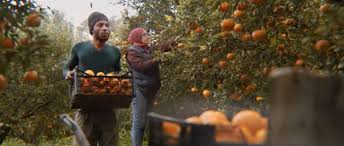Italy: Applications for seasonal work visa filled in one day

Rome: Entrance requests for foreign workers to come to Italy exceeded 82,550 in the first day possible to file applications, December 12, according to the Italian farmers association Coldiretti.
More requests were made for foreign workers to come to Italy on the first day applications were accepted than the entire number allowed, demonstrating a lack of local manpower in the country in several different sectors.
Italy and Europe’s main organization for agricultural businesses, Coldiretti, released the figures on December 13. Every year, around this time, the Italian government opens applications for the following cycle’s seasonal work visas. The decree this year covered the period 2023-2025. In August, they announced there would be 40,000 seasonal work visas available in the agriculture and tourist sectors.
Applications began at 9am on December 12. By the end of that day, Italy had already received 82,550 applications from non-EU workers hoping to be accepted on to the seasonal work scheme.

The first day of applications, known as a ‘click day’, Coldiretti noted, was only for seasonal workers in the agriculture, tourism and hotel sectors. Although there is no subdivision of the figures available at the territorial level, the regions in which most of the entrance requests were made, Coldiretti said, are ones in which there is a large use of manpower such as Trentino – especially for the apple harvest – and Veneto, where the vegetable and strawberries harvest will happen soon, in part due to unseasonably warm winter weather.
There is also among them Italy’s northern region of Friuli Venezia Giulia, where grapes vines are being prepared for the next season, as well as Lazio for vegetables and Campania for the planting of tobacco and the harvest of tomatoes for food processing plants.
The largest community of non-EU farmworkers in Italy, Coldiretti noted, come orignially from India, followed by Moroccans, Albanians, Senegalese, Pakistanis, Tunisians, Nigerians and Macedonians.
The work is mainly seasonal with peaks in demand during the summer harvest which, Coldiretti added, is ensured by legal workers coming from other countries and integrated into Italy, stopping in the country for some months and then returning every year in a mutually beneficial system. Migrant workers contribute substantially to many agricultural sectors.
The farmers association highlighted the demand for specialized workers such as tractor drivers, greenhouse farmers, and pruners. Additionally, there is a need for general workers involved in fruit and vegetable harvesting.
Coldiretti added that there are also new employment possibilities opening up in the sector. These range from company transformations to direct sales, from teaching farms to farmhouse kindergartens, projects to integrate people with disabilities as well as detainees and former drug addicts, park and road beautification, nature wellness retreats, landscaping, and renewable energy production.
